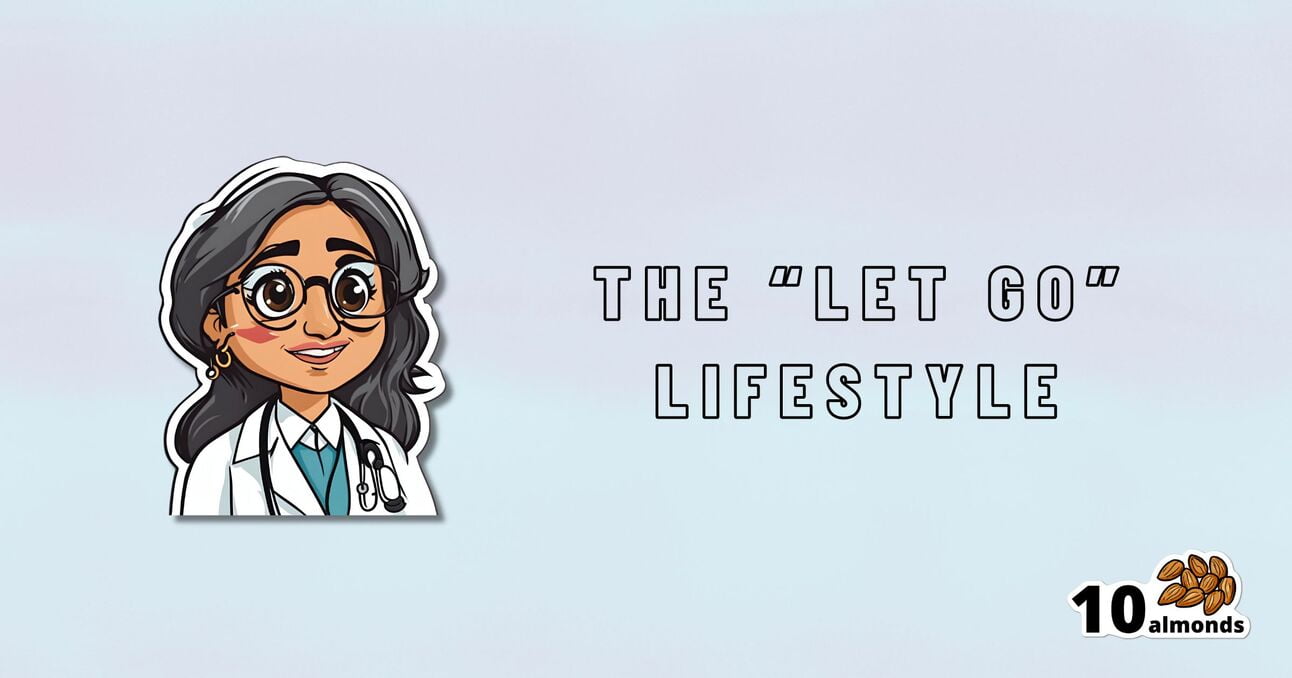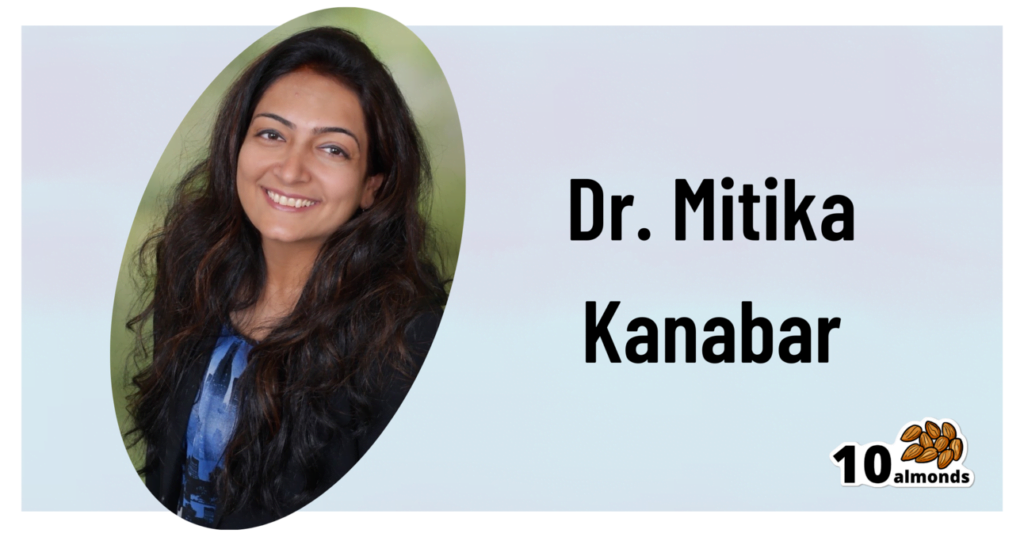Let’s Get Letting Go (Of These Three Things)
Dr. Mitika Kanabar’s wellness guide: Release tension, ditch unhealthy diets, and reduce screen time for a better you.

Let It Go…

This is Dr. Mitika Kanabar. She’s triple board-certified in addiction medicine, lifestyle medicine, and family medicine.
What does she want us to know?
Let go of what’s not good for you
Take a moment to release any tension you were holding, perhaps in your shoulders or jaw.
Now release the breath you might have been holding while doing that.
Dr. Kanabar is a keen yoga practitioner, and recommends it for alleviating stress, as well as its more general somatic benefits. And yes, stress is in large part somatic too!
One method she recommends for de-stressing quickly is to imagine holding a pin-wheel (the kind that whirls around when blown), and imagine slowly blowing it. The slowness of the exhalation here not only means we exhale more (shallow breathing starts with the out-breath!), but also gives us time to focus on the present moment.
Having done that, she recommends to ask yourself:
- What can you change right now?
- What about next time?
- How can you do better?
And then the much more relaxing questions:
- What can you not change?
- What can you let go?
- Whom can you ask for help?
Why did we ask the first questions first? It’s a lot like a psychological version of the physical process of progressive relaxation, involving first a deliberate tensing up, and then a greater relaxation:
How To Deal With The Body’s “Wrong” Stress Response
The diet that’s not good for you
Dr. Kanabar also recommends letting go of the diet that’s not good for you, too. In particular, she recommends dropping alcohol, sugar, and animal products.
Note: from a purely health perspective, general scientific consensus is that fermented dairy products are healthy in small amounts, as are well-sourced fish and poultry in moderation, assuming they’re not ultraprocessed or fried. However, we’re reporting Dr. Kanabar’s advice as it is.
Dr. Kanabar recommends either doing a 21-day challenge of abstention (and likely finding after 21 days that, in fact, you’re fine without), or taking a slow-and-gentle approach.
Some things will be easier one way or the other, and in particular if you drink heavily or use some other substance that gives withdrawal symptoms if withdrawn, the slow-and-gentle approach will be best:
Which Addiction-Quitting Methods Work Best?
If it’s sugar you’re quitting, you might like to check out:
Food Addictions: When It’s More Than “Just” Cravings
If it’s meat, though (in particular, quitting red meat is a big win for your health), the following can help:
The Whys and Hows of Cutting Meats Out Of Your Diet
Want more from Dr. Kanabar?
There’s one more thing she advises to let go of, and that’s excessive use of technology (the kind with screens) in the evening, and not just because of the blue light thing.
With full appreciation of the irony of a one-hour video about too much screentime:
Click Here If The Embedded Video Doesn’t Load Automatically
Enjoy!
Share This Post
Learn To Grow
Sign up for weekly gardening tips, product reviews and discounts.




